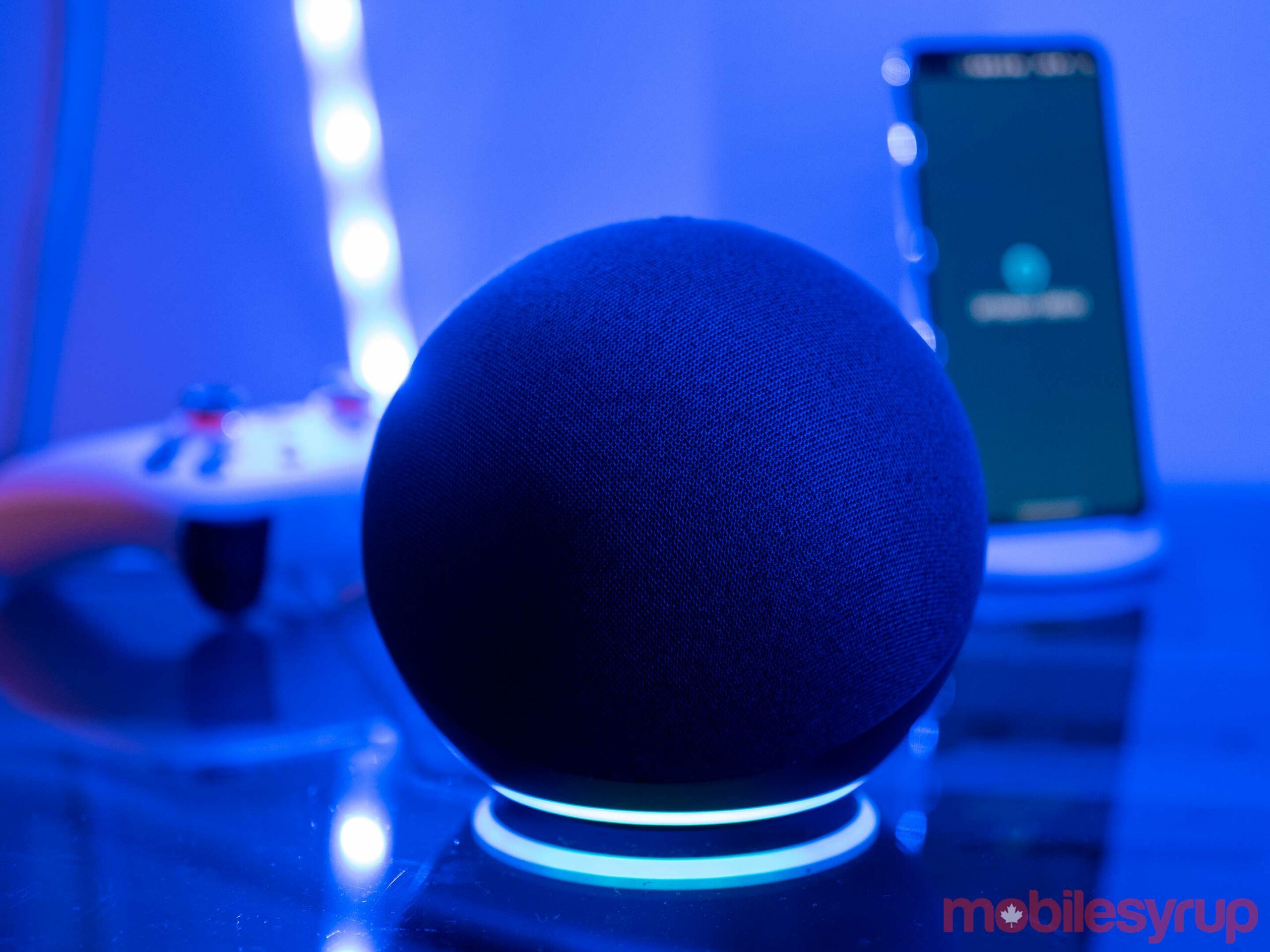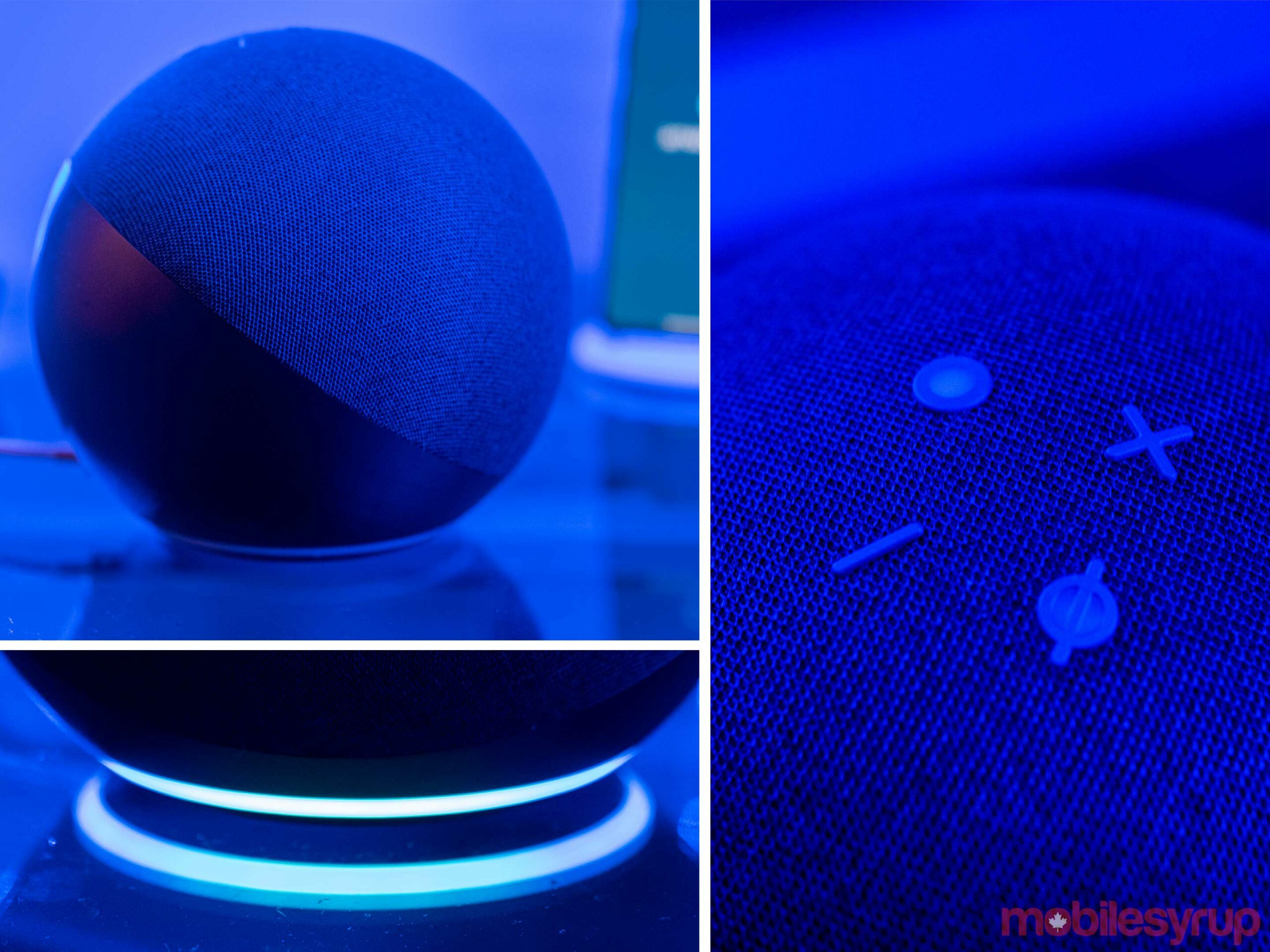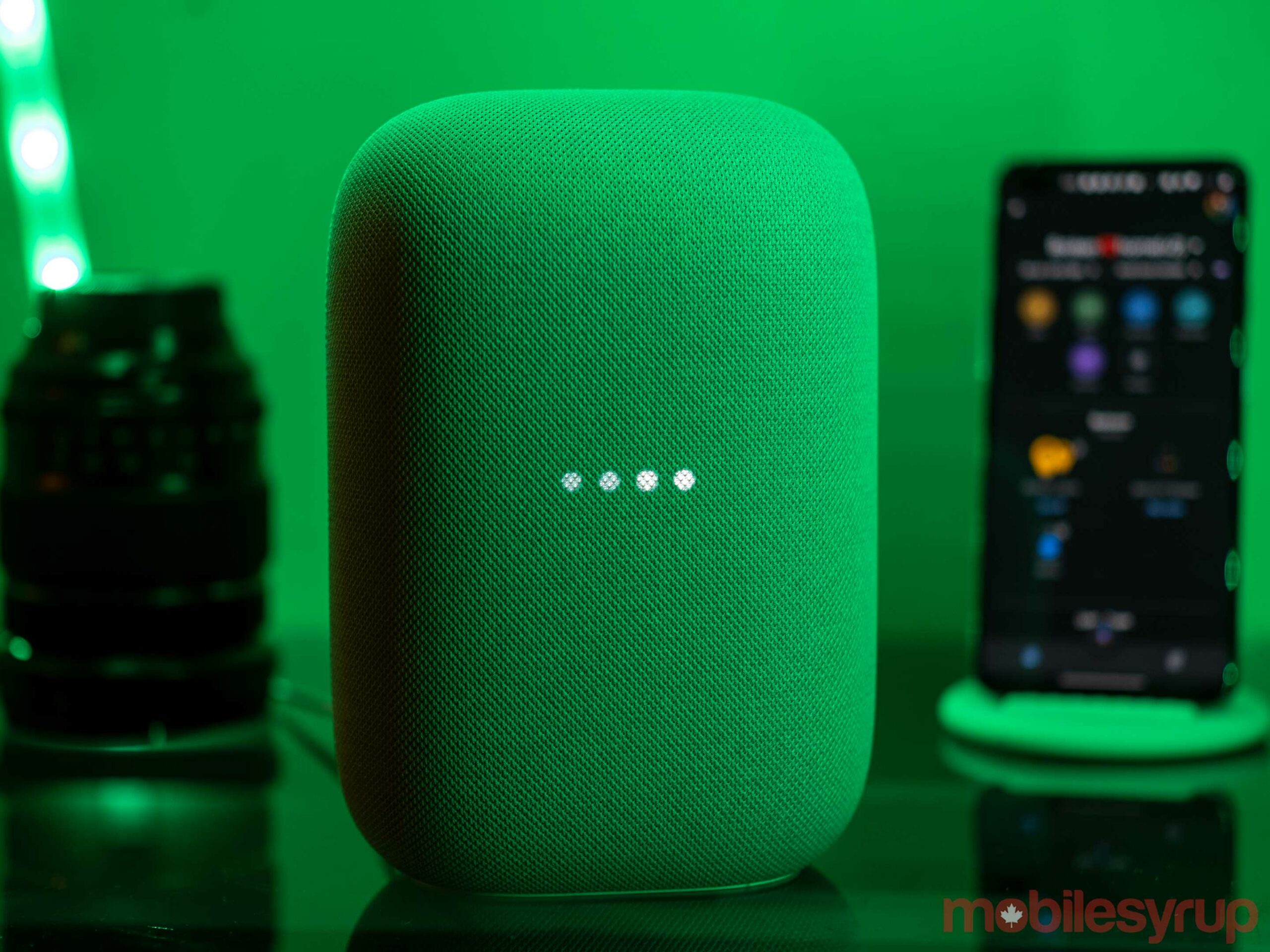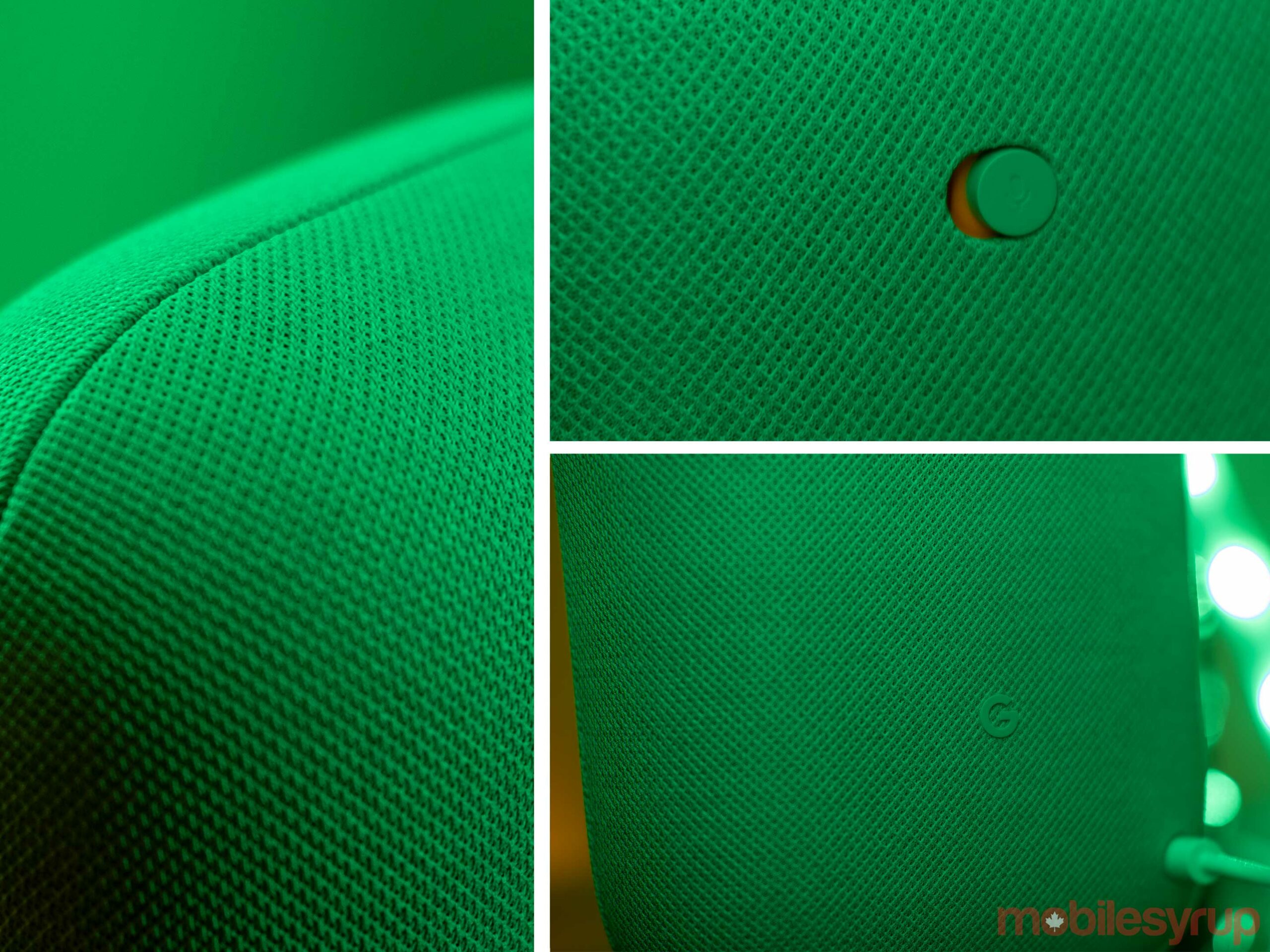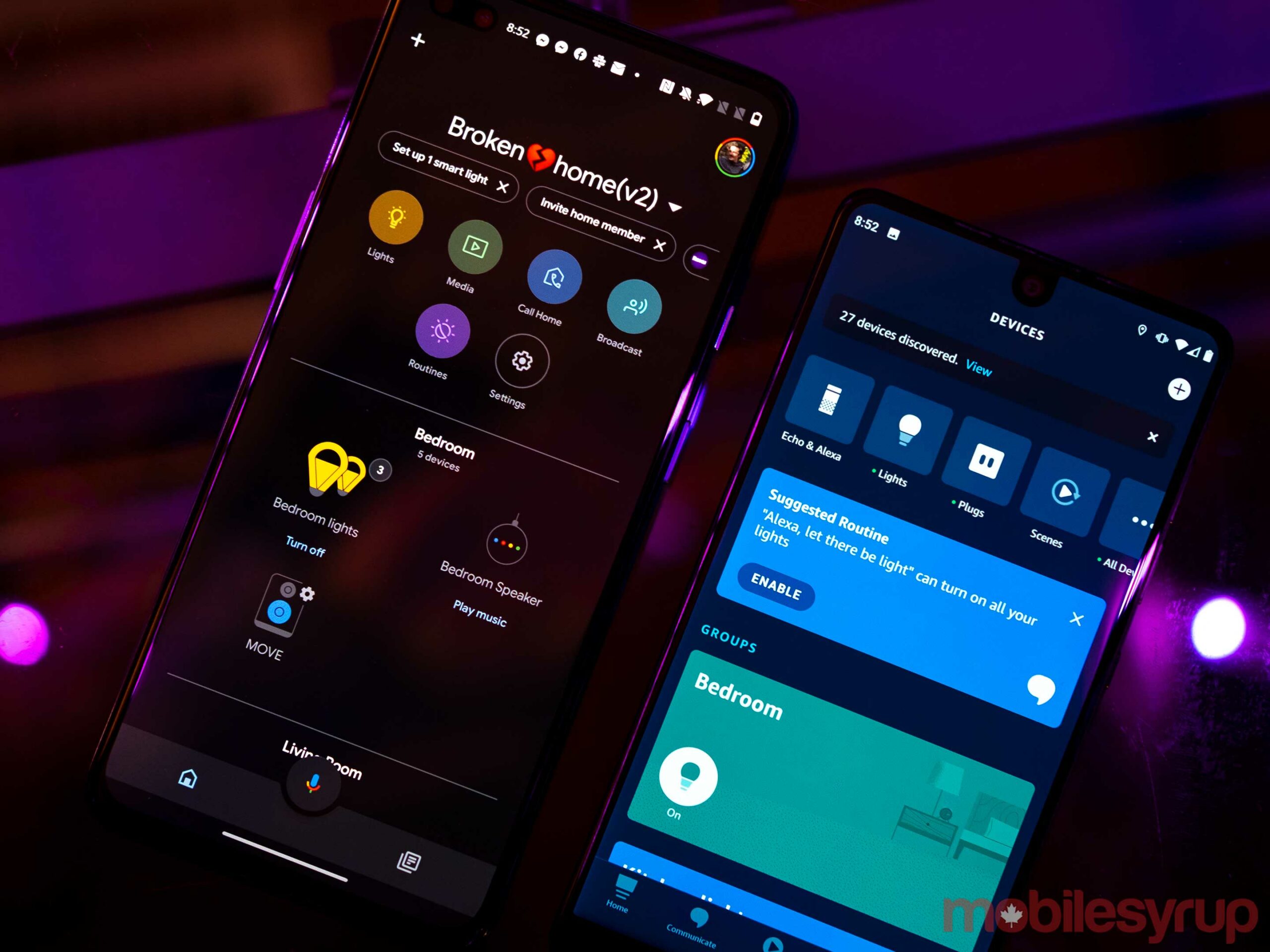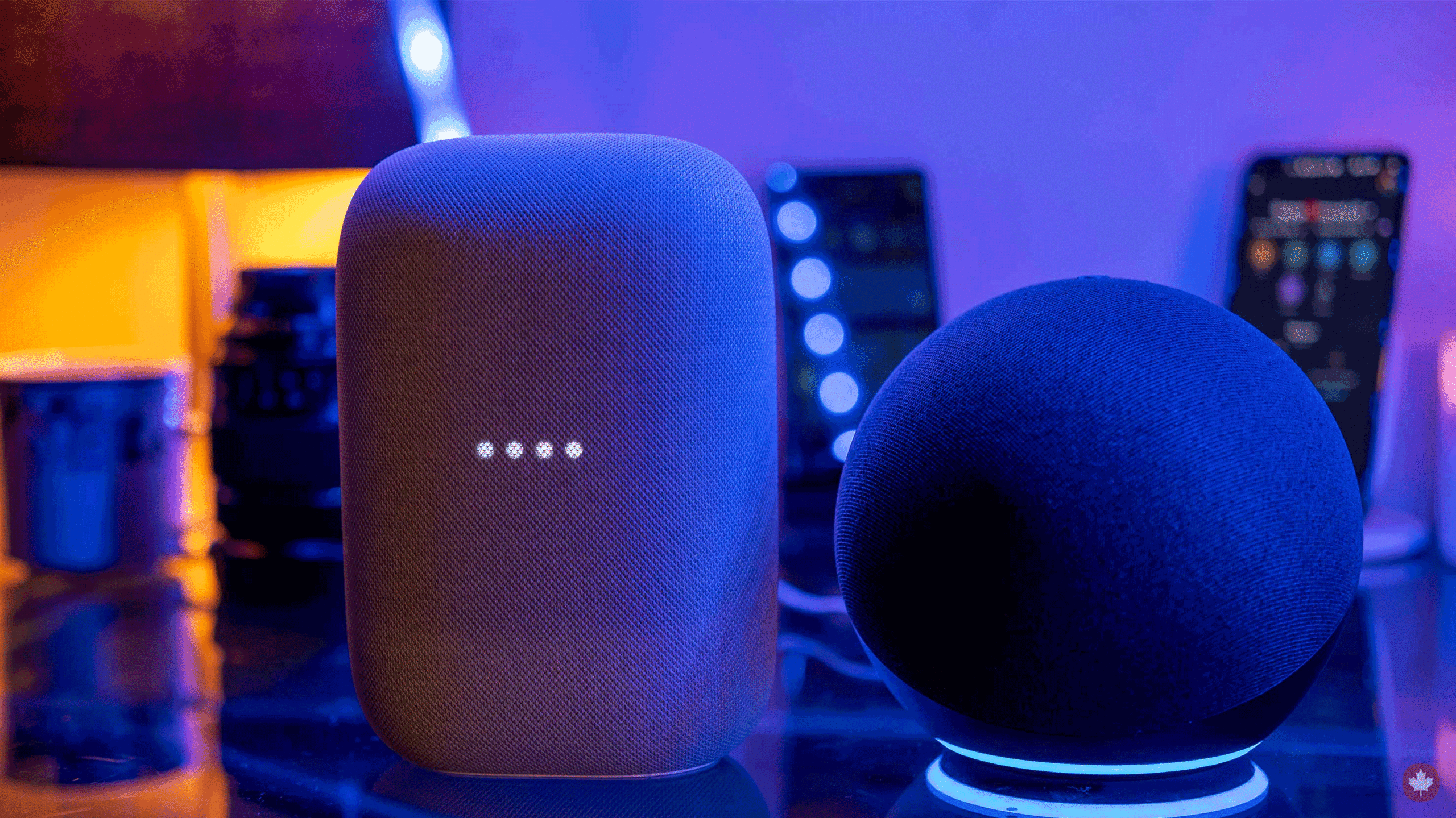
Google and Amazon refreshed their smart speakers this year with a renewed focus on music. We’ve pitted the two speakers head-to-head over the last few weeks to find out which one is the must-buy smart speaker this holiday season.
The Amazon Echo (2020) is the magic eight-ball of your dreams with the ability to answer thousands of questions and more. This year, Amazon chose to revamp the look of the regular Echo and the Echo Dot to make them fabric-covered spheres. The regular Echo also received a huge boost in sound quality now that it has three internal speakers.
The new Nest Audio is Google’s replacement for the original Google Home smart speaker that looks like an air freshener. This model also packs a nice speaker upgrade and a compelling redesign that involves a lot of fabric.
After extensive testing, each speaker excelled in different ways. However, I’m hard-pressed to say that one performs that much better than the other to make either a clear winner. As with Apple’s HomePod mini, it seems to come down to your taste in smart home ecosystem.
We decided not to add Apple’s latest HomePod mini to this comparison since it’s only geared towards Apple users. If you have an iPhone, Apple TV and you’re an avid user of the Home app on iOS, then the HomePod is for you and you shouldn’t consider either option from Google or Amazon. If you want to learn more about the HomePod mini, Patrick O’Rourke’s review.
If you already own a smart speaker from Google or Amazon or an Android phone, then read on to find out which 2020 smart speaker is going to appeal to you.
Who sounds supreme?
You would think that sound quality would be the big factor that sets these two smart speakers apart, but they’re actually very identical. In my testing, I found myself liking the Nest Audio a little more when I was listening to music quietly, but the 2020 Echo took down the house at full volume.
The Nest Audio has two speakers, putting it at a disadvantage compared to the three that are packed into the fourth-gen Echo. The Nest speaker has a 75mm woofer and 19mm tweeter, and both are forward-facing. The Echo packs two 20mm forward-facing tweeters and a 76.2mm upward-facing woofer.
At most volumes, the speakers are very comparable, but once you get the Echo over 75 percent, it takes the crown. That’s not to say that the Nest Audio isn’t loud. Both speakers get very loud, but the Echo’s sound seems to fill a room more easily and offers a fuller sound compared to the two-speakered Nest Audio.
Neither device is the best smart speaker on the market or even tuned perfectly. For instance, I found the Echo a little bass-heavy. This can be reduced easily enough in the Alexa app, but most people likely won’t even notice so I wouldn’t count this heavily against the Echo. It’s also worth noting that neither of these speakers is as good as a Sonos One, but for around half the price they offer great value for the sound quality they offer.
The Echo gets a bit louder than the Nest Audio and features slightly more audio range, making it the better speaker for large rooms.
If you live in a small apartment, then both of these smart speakers are going to offer identical experiences. On the other hand, if you live in a larger house or just love to crank your music to maximum volume, then the Echo is the clear winner.
Which device is better looking?
This is the section that differentiates the two smart speakers the most. Google has opted for a fabric-wrapped monolith design, while Amazon chose to make a magic eight-ball orb.
Both speakers stand out a lot more than their smaller counterparts from previous years, but it’s hard to say if that’s for better or worse. From a design standpoint, the smaller speakers worked better with most rooms, but these larger models offer more robust sound, so for some, they’re worth the tradeoff.
I like that both speakers use fabric to give off a premium allure. However, the plastic bottom of the Echo and its buttons on top make it appear a bit cheaper. That said, the speakers blend onto a shelf or table quite easily.
Both smart speakers feature a light to notify users when they’re listening. Google uses a simple four-dot design and Amazon utilizes a blue light ring along the bottom of the sphere. Both lights work fine, but I like the simplicity of the Google design a little more.
That said, Google takes simplicity a little too far. Hidden under the fabric along the top of the device are its playback control buttons. The left corner is volume down, the centre button is play/pause and the right button is volume up. Once you figure it out, this is a pretty clever way to control the device. But, most people I show the touch controls on Nest Mini to never knew they existed, and I expect the Nest Audio’s controls to remain equally as hidden.
When it comes down to it, I think I’m more inclined to put a Nest Audio in my house based on its design, but I understand why some people might prefer the new Echo. The simple, rectangular shape of the Nest Audio reminds me of traditional bookshelf speakers in a tongue in cheek sort of way. Plus, I like the colour arrangement that Google’s chosen this year for its speakers.
Which device has an easier to use app?
Both smart speakers come with a smart home app. Nest Audio pairs with the Google Home app, while the Echo pairs with the Alexa app.
Google’s approach with the Home app takes a lot from Apple’s Home app by putting smart home controls front and centre. Amazon, on the other hand, has a main page with random skill suggestions and other things I don’t need before the smart home controls.
Once you learn the Echo app you can do a lot with it, but I wish opening the app to simply turn off a single light took fewer taps. Amazon’s app puts a lot more focus on playing music or audiobooks and sending messages via Alexa than any other smart home app.
For me, these two features are pointless and annoying. I understand that it’s likely nice to have for people who send a lot of messages via their smart speaker, but I’m hard-pressed to believe that a lot of people actually use this feature.
When it comes to doing anything beyond turning smart devices on and off, it’s a convoluted nightmare on both apps. Google’s app has three Settings sections and Amazon’s app is overloaded with way too many features, just to give you an idea of how bogged down these apps are.
Each app interacts with its respective smart speaker in basically the same way by offering volume adjustments and simple bass and treble controls. However, the Echo does offer users the ability to use its two-way Aux port to either set up the Echo as a speaker for another device like a record player, or output music to a larger speaker system.
Both the Nest and the Echo can connect to third-party speakers via Bluetooth through their apps.
When it boils down to it, Google’s app might be a bit better at hiding all of its clutter making it a cleaner experience to use. However, the Alexa app doesn’t trail far behind since both apps are messy experiences.
Which device is right for you?
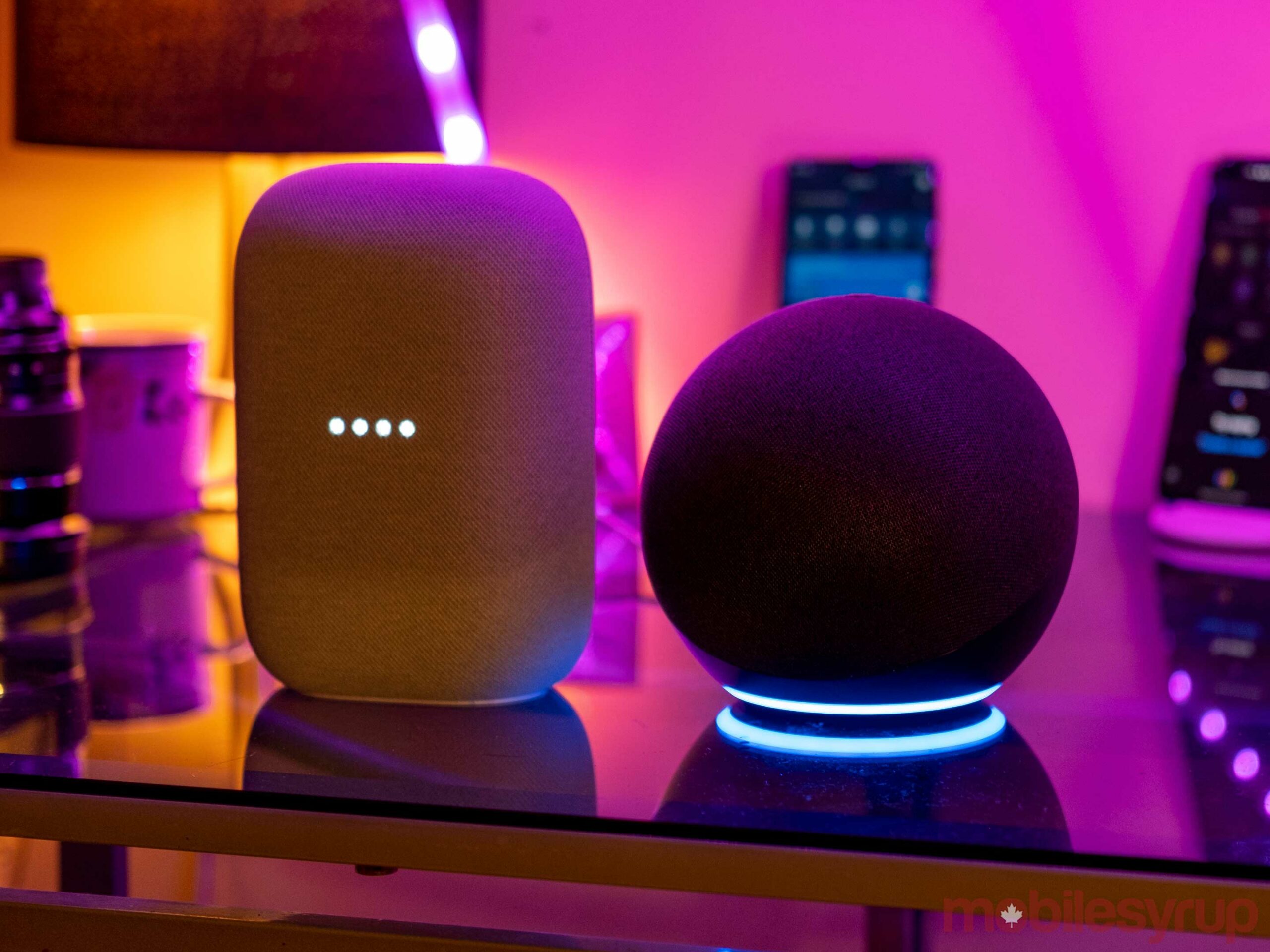
While the Amazon Echo (2020) is the superior smart speaker, it’s by such a slim margin that it depends more on what smart home ecosystem you’d rather be in, Amazon’s or Google’s.
Beyond outputting superior sound, the Echo also has a few more tricks up its sleeve. It features a built-in temperature sensor so it can tell you how warm it is in the room it’s sitting in. It’s also got a Zigbee hub, allowing it to connect and control select smart home devices without a hub.
While it would be nice for Google to add either of these features, especially the temperature sensor, they don’t make or break the experience. When you take a step back, both devices are capable smart speakers with more than capable speaker arrays.
When it comes down to it, both speakers are so similar that it really depends on what smart home ecosystem you’d rather be in. I know that’s kind of a non-answer, so I’ll say that even though the Echo is a better device, I still recommend the Nest Audio since it has a nicer look and Google’s smart home ecosystem is better.
When you’re looking at these two speakers you should make your buying decision based on what smart display you may want in the future, since that’s where the two companies differentiate themselves more. Even in terms of price both speakers are very comparable. Both speakers regularly cost $129 CAD, but often go on sale for around $90.
Since that’s the case, I recommend the Nest Audio for most people starting out a smart home.
MobileSyrup may earn a commission from purchases made via our links, which helps fund the journalism we provide free on our website. These links do not influence our editorial content. Support us here.

